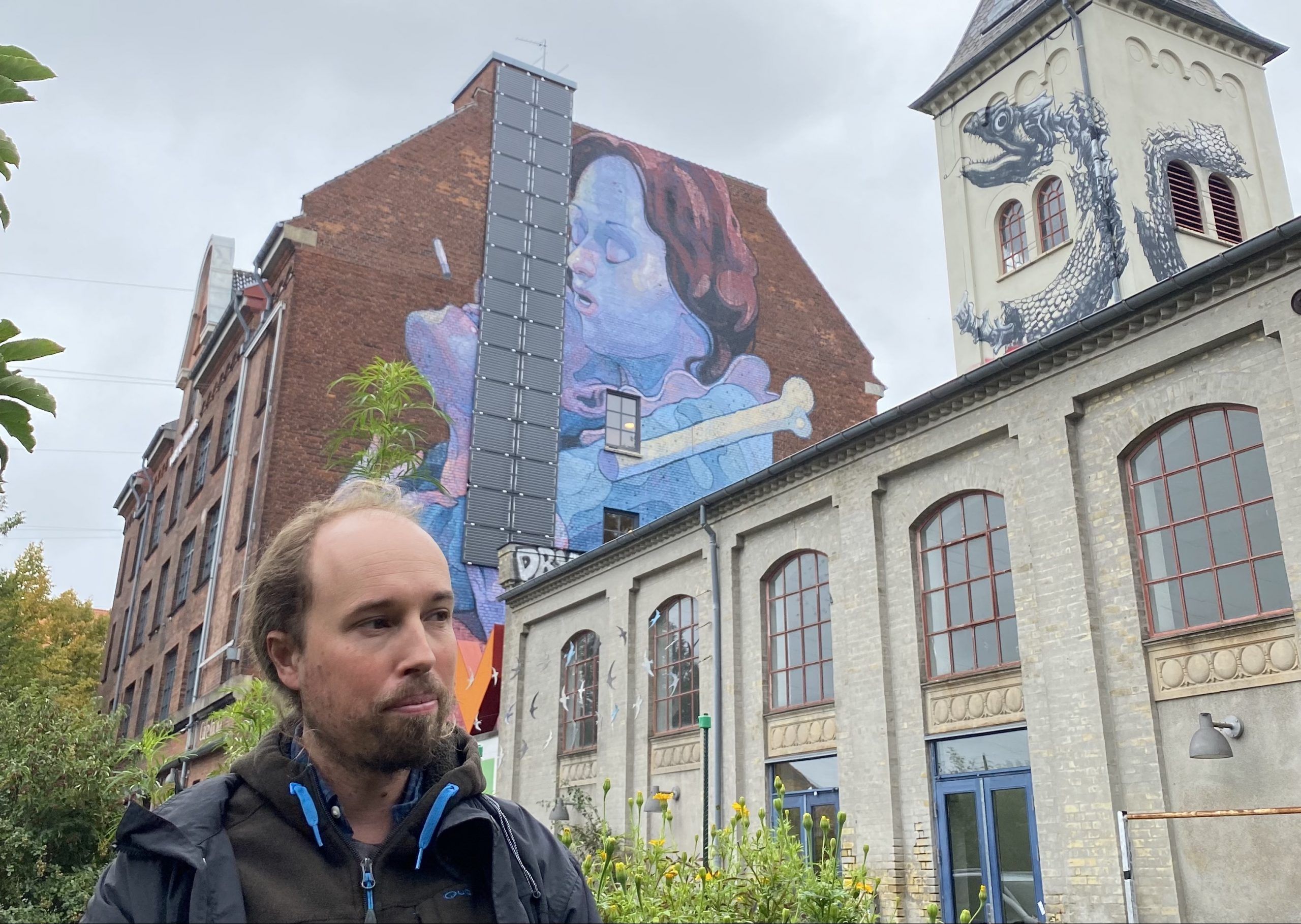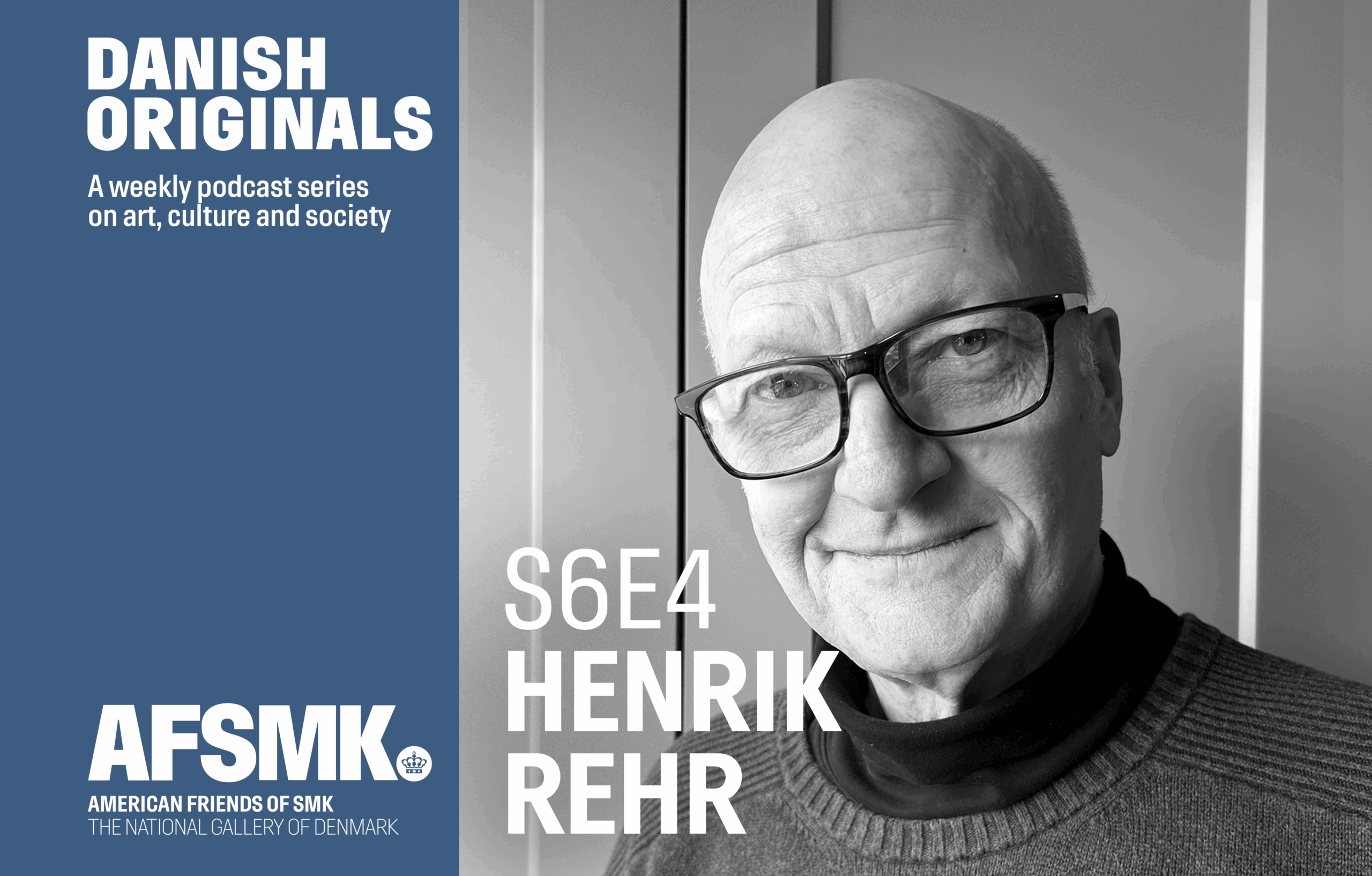In the heart of Valby’s Culture House, the community group Bæredygtigt samfund (sustainable society) is flourishing.
Between workshops and vegetable gardens, David Hirst, Kirstine Desian and Hannah Russell are drawing up their program for their participation in the November municipal elections.
A flow of people
Beyond their slogan, the party feels in line with values similar to Alternativet or the Enhedslisten red-green alliance of communists, socialists and workers. The party is not a fixed group, it’s a hub: a constant flow of helping people.
Its initiators are inspired by ancient Greek direct democracy agoras. They want total transparency by applying without filters what those after them will want.
On the same level
They consider themselves as intermediaries who seek horizontal debate, rather than vertical representation. “Everybody on the same level” is their motto.
They insist that they do not want to be part of an overly imposing hierarchy that leaves those it is supposed to represent.
CPH POST recently caught up with them to find out more.
Inspiring life model
Bæredygtigt samfund’s main vision of economy and society, explains Kirstine Desian, 54, consists of daily sharing on a small scale to facilitate each other’s life. Single-use mass production must give way to solidarity-based consumption that gives several lives to what everyone is able to lend.
“This is the kind of life model I would like to inspire everyone to follow. Everyone should now be convinced of it. We have to change things, we can’t go on,” contends Desian, who comes from the west coast of Denmark.
“But it’s difficult to find alternatives. We have to rely on initiatives such as the total recycling of raw materials, plastics, textiles. We need to stop massive shopping, over-consumption that leads to waste. It is a complex and slow revolution in thinking and acting that is needed, but through simple things. We have a very good life without using a lot.”
Not dissimilar to Christiania
A way of life that sometimes looks like Christiania. For Kirstine and fellow member David Hirst, the freetown is “more or less” a model in the community aspect, but it is not a method to develop everywhere in Copenhagen, because it is a marginal and minority way of life, which not everyone shares.
“We believe that the municipality lacks representation of the large international community in Copenhagen and want to have this perspective better expressed,” she concludes.
Reconnecting communities
The members headquarters are located in a community surplus food club.
“We want to develop more spaces around the city that encourage socialising in ways not driven by consumerism, with a low environmental impact. There are already some in Sydhavn, Vesterbro, Vanløse, but the objective is to establish those supply points in each neighbourhood,” explains David Hirst, 35, who comes from the UK.
“I feel like communities and initiatives like that are disconnected – there is no umbrella that brings them all together. The municipality should help to develop themselves, make them known and attractive such as reference structures. There is also a need to make them free to undertake to enable them to be autonomous in the long term”.
Biggest challenge ahead
Their most challenging point for the elections is the Lynetteholm artificial island, a real estate project to “protect the port of Copenhagen from rising sea levels, and to meet housing needs for 35,000 people”. According to Kirstin, “this is hypocrisy, because housing prices are expected to be expensive and accessible only to the rich, and it represents a disruption to the local ecosystem due to the colossal location and the likely pollution that will be generated in the course of construction and in the daily life of the island”.
Above all, it shouldn’t be an investment priority, she contends, it should be only dedicated to living and provide for a primary need.
“For 2025, the absolute goal is to stop talking about being a green city but just being truly a green city. It just needs to be an actual green focus and not just on the surface. There is no point in installing photovoltaic panels on roofs if the state makes it easier to buy cars. Some things are already done, but not completely and it’s not real green policies most of it. So we can push them in the right direction.”
Bæredygtigt samfund believes the municipality is moving too slowly, and it is with the individual mobilisation of each person that things can change.
Tough on transport
“The original part that we can bring through the municipality is the experience of humanity projects, suggests Hannah Russell, 27, who has been living in the capital region for five years now.
“And a little bit more about systemic change” adds David. “Prevent or restrict?”
According to him, both are important. Their plans include closing small streets to cars, encouraging the production of smaller and less polluting cars, banning trucks in the city, focusing even more on the use of bicycles and making transport free.
“Most of our signatures come from Norrebro. That’s where the people who share our views are.”
















